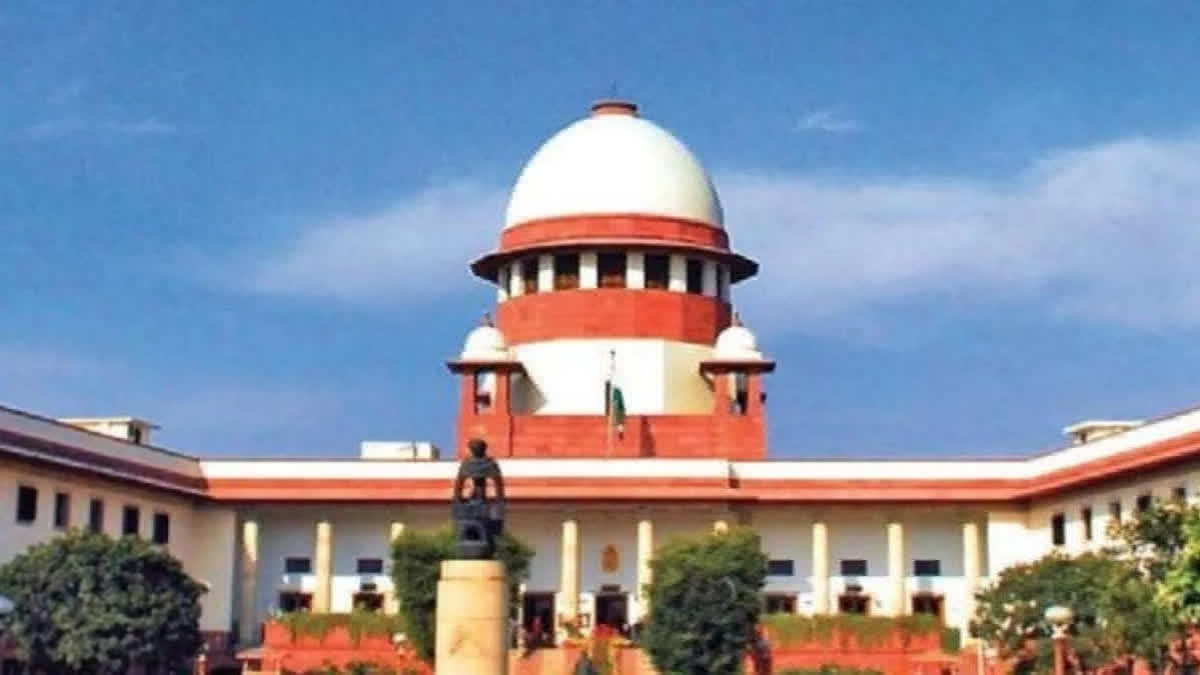New Delhi: The Supreme Court has said a constitution bench, comprising five judges, will examine: what are the contours of the power of Parliament to enact a law under Article 239-AA (7) and whether Parliament can abrogate the constitutional principles of governance for the Delhi government by making a law taking away its control over services.
The apex court Thursday referred the Delhi government’s challenge to Centre’s ordinance -- Government of National Capital Territory of Delhi (Amendment) Ordinance, 2023 -- to a constitution bench. In an order uploaded on its website, the apex court said neither the 2018 constitution bench judgment nor the 2023 constitution bench judgment has dealt with the interpretation of Article 239-AA(7). It stressed, “the disposal of the writ petition requires this court to answer a substantial question of law as to the interpretation of the Constitution”.
The Centre issued the ordinance in the Delhi services matter by exercising its power under Article 239-AA, a special provision in the Constitution in connection with the national capital. The bench said the power of Parliament to enact a law granting the Union of India executive power over services is not in contention, however, this court while deciding the constitutional validity of the 2023 Ordinance must decide if the exercise of such a power is valid.
The 10-page order passed by the bench, headed by Chief Justice D Y Chandrachud and comprising justices P S Narasimha and Manoj Misra, said: “We accordingly refer the following questions to a Constitution Bench: (i) What are the contours of the power of Parliament to enact a law under Article 239-AA(7); and (ii) Whether Parliament in the exercise of its power under Article 239- AA(7) can abrogate the constitutional principles of governance for National Capital Territory of Delhi (NCTD)”.
The top court said there are two preliminary considerations which arise at this stage. It said the first is on the import of Section 3A, which removes Entry 41 of List II from the legislative competence of NCTD. “On the exclusion of Entry 41 from NCTD’s legislative power, the government of NCTD ceases to have executive power over services because executive power is co-terminus with the legislative power. Therefore, the issue of whether a law could completely remove NCTD’s executive power over Entry 41 is interconnected with the validity of Section 3A”, said the bench.
The NCT Ordinance inserts Section 3A in the GNCTD Act 1991. Section 3A stipulates that notwithstanding anything contained in any judgment, order, or decree of any Court, the Legislative Assembly shall have the power to enact laws as prescribed in Article 239-AA, except with respect to Entry 41 of List II of the Seventh Schedule to the Constitution.
The bench said a primary reading of Article 239-AA(7)(a) indicates that the law shall not alter the existing constitutional structure envisaged for NCTD in Article 239-AA. “However, prima facie reading of Article 239-AA(7)(b) denotes that the law enacted under Article 239-AA(7)(a) could alter the existing constitutional structure of governance of NCTD. This apparent conflict between the two clauses on the nature of law-making power vis-à-vis NCTD’s constitutional structure of governance needs to be resolved by this court”, said the order.
During the hearing on the matter on Thursday, the top court raised a query in connection with the ordinance, saying that it took away Delhi government’s control over services and the Constitution excludes three entries of List II (State List) related to police, law and order and land from the control of the Delhi government.
The top court, in its order, noted that the Preamble to the 2023 Ordinance states that the law is made in exercise of powers under Article 239-AA(3)(b) and Article 239-AA(7). “Article 239-AA(3)(b) states that Parliament has the power to make laws with respect to “any matter” for NCTD. Article 239-AA(7)(a) grants Parliament the power to enact a law for “giving effect to, or supplementing” the provisions of Article 239-AA, and for all matters incidental to it. Article 239-AA(7)(b) stipulates that such a law shall not be deemed to be an amendment to the Constitution even if the law amends the Constitution or has the effect of amending the Constitution”, noted the top court.
The Delhi government had sought a stay of the NCT ordinance on the ground that it prevents the Government of NCTD from meeting its popular mandate. The top court refused to entertain state government submissions -- the entire system will be paralysed during its pendency -- against referral of the matter to a constitution bench.
The state government had submitted that 2023 ordinance abrogates the principles of collective responsibility and the triple chain of accountability which are important facets of NCTD’s governance structure.


